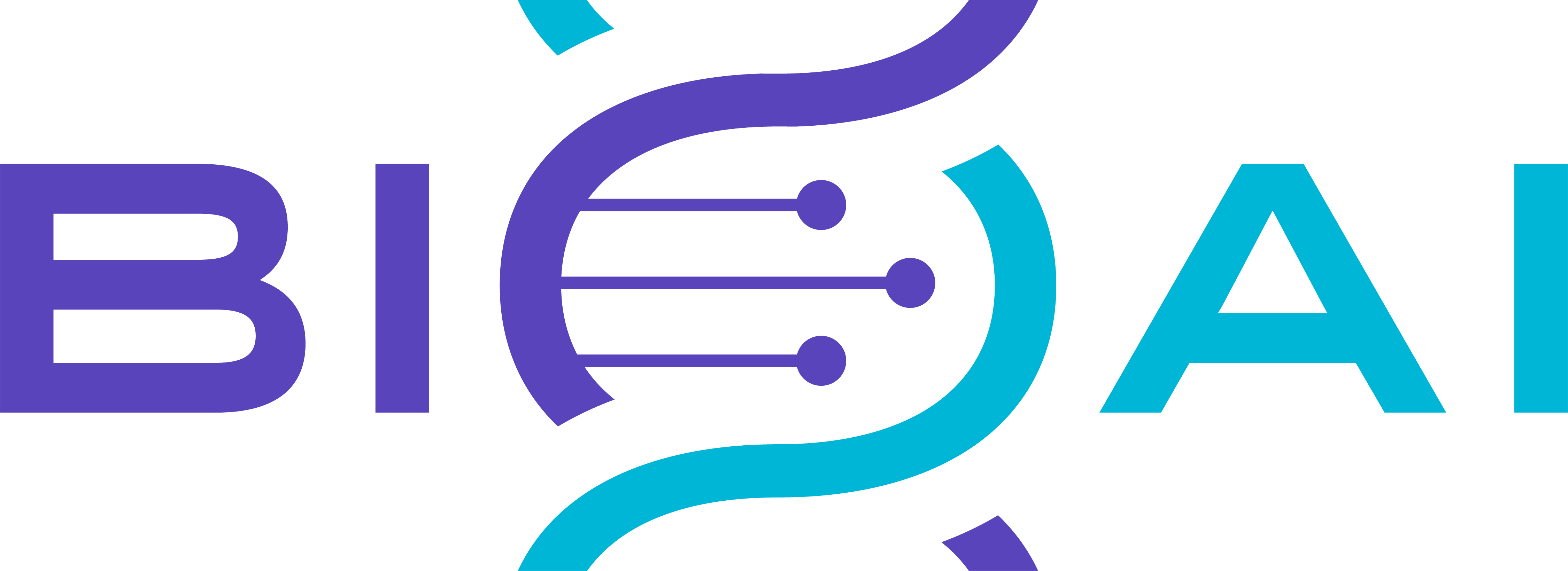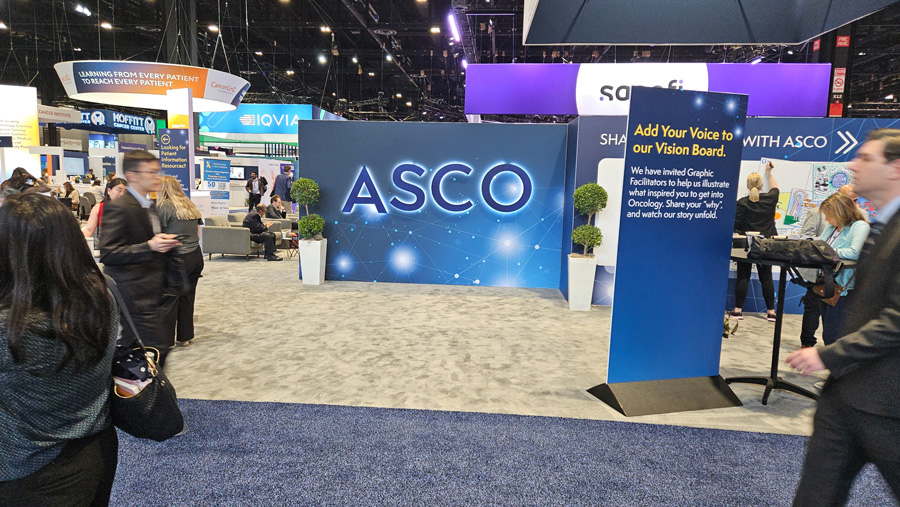This past week, the 2024 American Society of Clinical Oncology (ASCO) conference was held in Chicago. Biotech companies, top BioPharma, and industry-leading clinical laboratories gathered at McCormick Place to showcase their advancements in cancer research and treatment. We’ve put together this year’s ASCO highlights, key takeaways and the most notable presentations from the event.
2024 ASCO Highlights: Advances in Immunotherapy and Targeted Therapies
One of the central themes of ASCO 2024 was the continued evolution of immunotherapy and targeted treatments. The conference featured promising results from various clinical trials.
1. Pfizer’s Lorbrena in ALK+ Metastatic NSCLC
Pfizer’s Lorbrena demonstrated unprecedented 5-year overall survival data in patients with ALK-positive metastatic non-small cell lung cancer (NSCLC). This breakthrough underscores Lorbrena’s potential as a leading therapy in this patient population, showing substantial long-term benefits (ASCO Post).
2. AbelZeta Pharma and AstraZeneca: C-CAR031 Study
AbelZeta Pharma, in collaboration with AstraZeneca, presented promising data from their Phase I study of C-CAR031, a GPC3-specific armored CAR-T therapy for advanced hepatocellular carcinoma (HCC). The study highlighted the safety and preliminary efficacy of this innovative therapy, which uses TGFβRIIDN armoring technology to enhance CAR-T cell performance (ASCO Post).
3. Daiichi Sankyo and AstraZeneca’s Enhertu for Breast Cancer:
Daiichi Sankyo, in partnership with AstraZeneca, presented compelling data on Enhertu (trastuzumab deruxtecan). The drug showed efficacy benefits in hormone receptor-positive (HR+), HER2 low, and “ultra-low” breast cancer populations, significantly impacting the treatment paradigm for these subgroups (AstraZeneca Source).
4. AstraZeneca’s Tagrisso in EGFR Mutation+ NSCLC:
AstraZeneca replicated the success of its PACIFIC study design in stage III unresectable NSCLC with Tagrisso for the EGFR mutation-positive population in the LAURA study. The trial showed significant survival benefits, reinforcing Tagrisso’s role in treating this specific patient group. (Fierce Source)
5. AstraZeneca’s Imfinzi in LS-SCLC:
AstraZeneca also presented impressive results from the ADRIATIC trial for limited-stage small cell lung cancer (LS-SCLC). Imfinzi (durvalumab) maintenance therapy following chemoradiation led to nearly a 2-year overall survival benefit compared to chemoradiation alone, earning a standing ovation during the plenary session (AstraZeneca Source).
2024 ASCO Highlights: Breakthroughs in Early Diagnosis, Prevention and Disease Monitoring
1. Moderna and Merck’s mRNA-4157 in Melanoma:
The combination of mRNA-4157 with pembrolizumab was particularly notable. In the KEYNOTE-942 trial involving 157 patients with high-risk stage III/IV melanoma, the combination therapy improved both RFS and DMFS significantly compared to pembrolizumab alone. The trial also underscored the manageable safety profile of this combined treatment, offering new hope for melanoma patients. (Moderna Source)
2. Predicine: Liquid Biopsy Studies
Predicine introduced data from ten liquid biopsy studies, demonstrating the clinical utility of ctDNA for patient selection and disease monitoring. These studies highlight how liquid biopsies can revolutionize precision oncology by offering less invasive diagnostic and monitoring tools. (Predicine Source)
2024 ASCO Highlights: Notable Clinical Trials
1. GSK’s Blenrep for Multiple Myeloma
GSK made a strong case for Blenrep’s return to the market with promising efficacy results from the DREAMM-7 and DREAMM-8 trials. Although safety concerns remain, the efficacy data has reignited interest in Blenrep as a treatment option for multiple myeloma (Fierce Source)
2. Ascentage Pharma: Olverembatinib in SDH-Deficient GIST
Ascentage Pharma presented new data on Olverembatinib, an investigational drug for treating SDH-deficient gastrointestinal stromal tumors (GIST). The study showcased the drug’s potential in providing effective treatment options for patients with this rare and challenging cancer subtype (ASCO Source).
2024 ASCO Highlights: Artificial Intelligence in Cancer Care
1. AI Patient Navigator Re-engages Patients to Attend Colonoscopy Screening Appointments
Artificial intelligence (AI) was highlighted for its potential to enhance patient outcomes and streamline cancer care processes. A notable study discussed the use of AI to re-engage communities of color who had missed colonoscopy appointments, showcasing AI’s role in addressing healthcare disparities (ASCO Post).
2. BioAI Applying H&E-based Digital Biomarkers to Accelerate Cancer Research
At BioAI, we’re using multimodal AI to improve the discovery of novel biomarkers and drug targets tailored to specific patient profiles. BioAI has strong experience and a proven track record in developing H&E-based AI models for known genetic mutations in various cancer indications. Learn more about our AI biomarker services and how BioAI is harnessing multimodal AI to transform precision medicine.
Conclusion
ASCO 2024 was a testament to the rapid advancements in cancer research and the commitment of the global oncology community to improving patient outcomes. The integration of AI, the emphasis on early detection, and the development of more effective and less toxic treatments are paving the way for a future where cancer care is more personalized and accessible.
For more detailed information, visit the ASCO conference page and explore specific studies and presentations that were featured this year.

